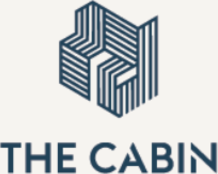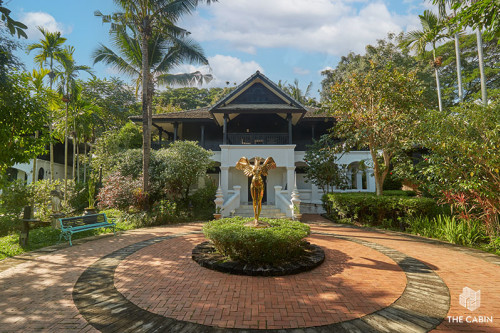
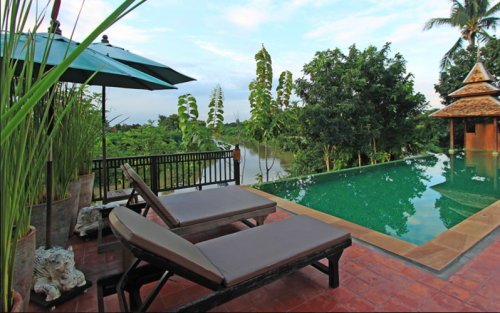




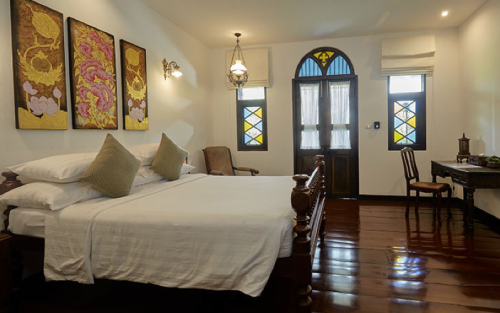
The Cabin
Verified Center
This provider's information has been quality-checked by Recovery.com's Research Team for accuracy and completeness, including center verification through appropriate third-party organizations.
Treatment Focus
This center treats substance use disorders and co-occurring mental health conditions. Your treatment plan addresses each condition at once with personalized, compassionate care for comprehensive healing.
Primary Level of Care
Offering intensive care with 24/7 monitoring, residential treatment is typically 30 days and can cover multiple levels of care. Length can range from 14 to 90 days typically.
Treatment Focus
This center treats substance use disorders and co-occurring mental health conditions. Your treatment plan addresses each condition at once with personalized, compassionate care for comprehensive healing.
Primary Level of Care
Offering intensive care with 24/7 monitoring, residential treatment is typically 30 days and can cover multiple levels of care. Length can range from 14 to 90 days typically.
Private Pay
You pay directly for treatment out of pocket. This approach can offer enhanced privacy and flexibility, without involving insurance. Exact costs vary based on program and length of stay. Contact the center for specific details.
The Cabin
The Cabin
About The Cabin
The Cabin treats many forms of addiction, including drug and alcohol addictions and process addictions like internet addiction, sex addiction, food addiction, and gambling. Their Recovery Zones treatment method boasts a 96% programme completion rate, with Qualified counsellors help each client get to the root cause of their addiction. The Cabin does this through an integrative approach that draws on cognitive behavioural therapy, mindfulness, and the 12 Steps.
A Variety of Comprehensive Treatment Programs
The Cabin offers a range of specialty programs, including a fully comprehensive LGBTQ rehab facility called Resort 12, an Arabic language inpatient program catered to Muslim clients, a program specifically for trauma and addiction, a family programme, and online aftercare services. Trauma-informed services use evidence-based treatments like eye-movement desensitization therapy (EMDR), yoga, and CBT. Family programming involves the clients’ families in recovery, helping everyone step forward on the path to healing. Families are welcomed for 3 days during The Cabin’s on-site family program.
Expert, Specialized Staff
Staff at The Cabin are specially equipped to treat a variety of cultural groups, operating with empathy, compassion, and confidentiality. A board of medical directors ensures that The Cabin’s care remains top-notch in every area of treatment, and that each client can trust in their care, safety, and privacy during treatment. After inpatient stays, clients at The Cabin can engage in online aftercare services, or attend a Cabin facility to receive their aftercare in person.
Recover In Private Luxury
Clients will enjoy a holistic experience in the forested foothills of Northern Thailand, plus access to five-star amenities like private villa accommodations, swimming pools, lush gardens, meditation salas, a mountain-view fitness centre, and an open-air restaurant. The Cabin curates healthy menus with top chefs, accommodating to dietary restrictions as needed.

Center Overview
Treatment Focus
This center treats substance use disorders and co-occurring mental health conditions. Your treatment plan addresses each condition at once with personalized, compassionate care for comprehensive healing.
Cash Pay Rates
Estimated Cash Pay Rate
Center pricing can vary based on program and length of stay. Contact the center for more information. Recovery.com strives for price transparency so you can make an informed decision.
Luxury rehab centers offer a unique blend of luxurious amenities and high-quality treatment. From private suites to gourmet dining, personal trainers to spa treatments, these facilities provide a high level of comfort and discretion.

Meet Your Care Team

Lee Daniel Hawker
Lead Therapist
MBPsS

Dr. Saji Joseph
Counsellor
MSW, PhD.

Jordan Scott
Counsellor

Alvaro Carvalho
Counsellor
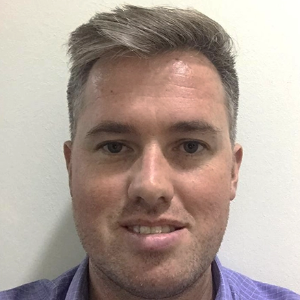
Jordan Paterson
Director of Outpatient Service

Vedanta Attri
Head Counsellor - Outpatient Service
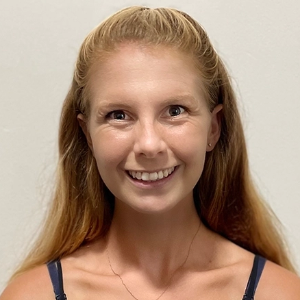
Caitlin Bennett
Counsellor

Mark Willet
Addiction Counsellor
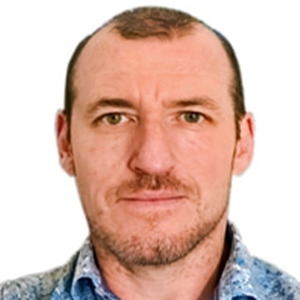
Shane O’ Neill
Primary Therapist
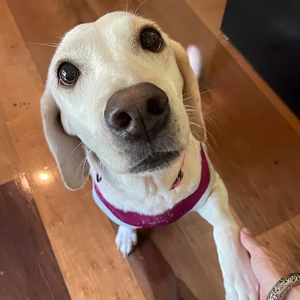
Misty
Emotional Support Animal

Rob Everitt
Lead Counsellor
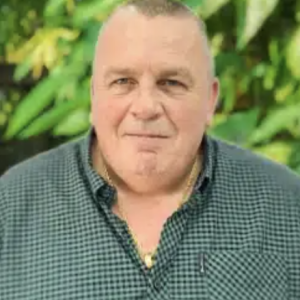
Rob Everitt
LEAD COUNSELLOR
MBABCP
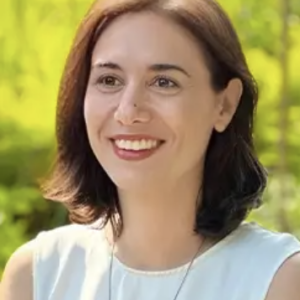
Xzarina Nicholso
COUNSELLOR

Priyanka Bundhoo
HOLISTIC PRACTITIONER
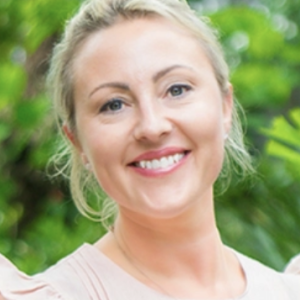
Stacey Kay
ART THERAPIST

Sharon Filbeck
Counsellor




Levels of Care







Your Care Options
Specializations
Alcohol
Using alcohol as a coping mechanism, or drinking excessively throughout the week, signals an alcohol use disorder.
Drug Addiction
Drug addiction is the excessive and repetitive use of substances, despite harmful consequences to a person's life, health, and relationships.
Methamphetamine
Methamphetamine, or meth, increases energy, agitation, and paranoia. Long-term use can result in severe physical and mental health issues.
Professionals
Busy, high-ranking professionals get the personalized treatment they need with greater accommodations for work, privacy, and outside communication.
Stress
Stress is a natural reaction to challenges, and it can even help you adapt. However, chronic stress can cause physical and mental health issues.
Who We Treat
Older Adults
Addiction and mental health treatment caters to adults 55+ and the age-specific challenges that can come with recovery, wellness, and overall happiness.
Executives
Executive treatment programs typically directly support the needs of people who manage businesses and may provide flexible schedules and office space to allow work during treatment.
Midlife Adults
For adults ages 40+, treatment shifts to focus on the unique challenges, blocks, and risk factors of their age group, and unites peers in a similar community.
Professionals
Busy, high-ranking professionals get the personalized treatment they need with greater accommodations for work, privacy, and outside communication.
Approaches
Bio-Medical
A philosophy focusing on the biomechanics behind mental health disorders, using prescribed medications as a supplement to behavioral therapy.
Evidence-Based
A combination of scientifically rooted therapies and treatments make up evidence-based care, defined by their measured and proven results.
Holistic
A non-medicinal, wellness-focused approach that aims to align the mind, body, and spirit for deep and lasting healing.
Individual Treatment
Individual care meets the needs of each patient, using personalized treatment to provide them the most relevant care and greatest chance of success.
One-to-One
Patients work with their treatment team members on a 1-on-1 basis, keeping their journey and treatment fully private and personalized.
One-to-One
Patients work with their treatment team members on a 1-on-1 basis, keeping their journey and treatment fully private and personalized.
Personalized Treatment
The specific needs, histories, and conditions of individual patients receive personalized, highly relevant care throughout their recovery journey.
Twelve Step
Incorporating spirituality, community, and responsibility, 12-Step philosophies prioritize the guidance of a Higher Power and a continuation of 12-Step practices.
Wellness
Wellness philosophies focus on the physical, mental, and spiritual wellness of each patient, helping them restore purpose with natural remedies.
Therapies
Mindfulness Therapy
This ancient practice can be mental, emotional, and even spiritual. In meditation, you focus your attention on the present moment without judgement.
Art Therapy
Visual art invites patients to examine the emotions within their work, focusing on the process of creativity and its gentle therapeutic power.
Expressive Arts
Creative processes like art, writing, or dance use inner creative desires to help boost confidence, emotional growth, and initiate change.
Eye Movement Therapy (EMDR)
Lateral, guided eye movements help reduce the emotional reactions of retelling and reprocessing trauma, allowing intense feelings to dissipate.
Family Therapy
Family therapy addresses group dynamics within a family system, with a focus on improving communication and interrupting unhealthy relationship patterns.
Twelve Step Facilitation
12-Step groups offer a framework for addiction recovery. Members commit to a higher power, recognize their issues, and support each other in the healing process.
Conditions We Treat
Pornography Addiction
A person with a porn addiction is emotionally dependent on pornography to the point that it interferes with their daily life and relationships.
Anger
Although anger itself isn't a disorder, it can get out of hand. If this feeling interferes with your relationships and daily functioning, treatment can help.
Anxiety
Anxiety is a common mental health condition that can include excessive worry, panic attacks, physical tension, and increased blood pressure.
Codependency
Codependency is a pattern of emotional dependence and controlling behavior. It's most common among people with addicted loved ones.
Depression
Symptoms of depression may include fatigue, a sense of numbness, and loss of interest in activities. This condition can range from mild to severe.
Gambling
Excessive, repetitive gambling causes financial and interpersonal problems. This addiction can interfere with work, friendships, and familial relationships.
Gaming
Compulsive gaming is most often a problem for children and teens. The disorder can affect physical health, sleep, and the ability to focus at school.
Sex Addiction
Compulsively seeking out sex can easily become a problem. This addiction is detrimental to relationships, physical health, and self-esteem.
Shopping Addiction
Excessive shopping and spending also known as compulsive buying disorder makes life unsustainable. It puts a strain on finances, relationships, and emotional well-being.
Substances We Treat
Alcohol
Using alcohol as a coping mechanism, or drinking excessively throughout the week, signals an alcohol use disorder.
Benzodiazepines
Benzodiazepines are prescribed to treat anxiety and sleep issues. They are highly habit forming, and their abuse can cause mood changes and poor judgement.
Co-Occurring Disorders
A person with multiple mental health diagnoses, such as addiction and depression, has co-occurring disorders also called dual diagnosis.
Cocaine
Cocaine is a stimulant with euphoric effects. Agitation, muscle ticks, psychosis, and heart issues are common symptoms of cocaine abuse.
Drug Addiction
Drug addiction is the excessive and repetitive use of substances, despite harmful consequences to a person's life, health, and relationships.
Ecstasy
Ecstasy is a stimulant that causes intense euphoria and heightened awareness. Abuse of this drug can trigger depression, insomnia, and memory problems.
Heroin
Heroin is a highly addictive and illegal opioid. It can cause insomnia, collapsed veins, heart issues, and additional mental health issues.
Methamphetamine
Methamphetamine, or meth, increases energy, agitation, and paranoia. Long-term use can result in severe physical and mental health issues.
Languages
Aftercare
Care Designed for Your Needs
Personal Amenities
Amenities
Special Considerations
Flexible technology policies
Centers with flexible technology policies allow professionals to stay in touch with work and give patients a greater sense of connection and normalcy.
Activities
Yoga
Yoga is both a physical and spiritual practice. It includes a flow of movement, breathing techniques, and meditation.
Off-Site Activities
Yoga
Yoga is both a physical and spiritual practice. It includes a flow of movement, breathing techniques, and meditation.
Off-Site Amenities
What people are saying
Treatment
5.0
Accommodations
4.7
Food & Nutrition
4.7
Value
5.0
Anonymous
Treatment in 2025 • (30 days) • Reviewed 11/23/25
Former Client
HB
Treatment in 2025 • (30 days) • Reviewed 03/12/25
Former Client
•Brand Consultant
•Sydney, Australia
Anonymous
Reviewed 12/09/24
Referring Professional
•Clinical Psychologist






